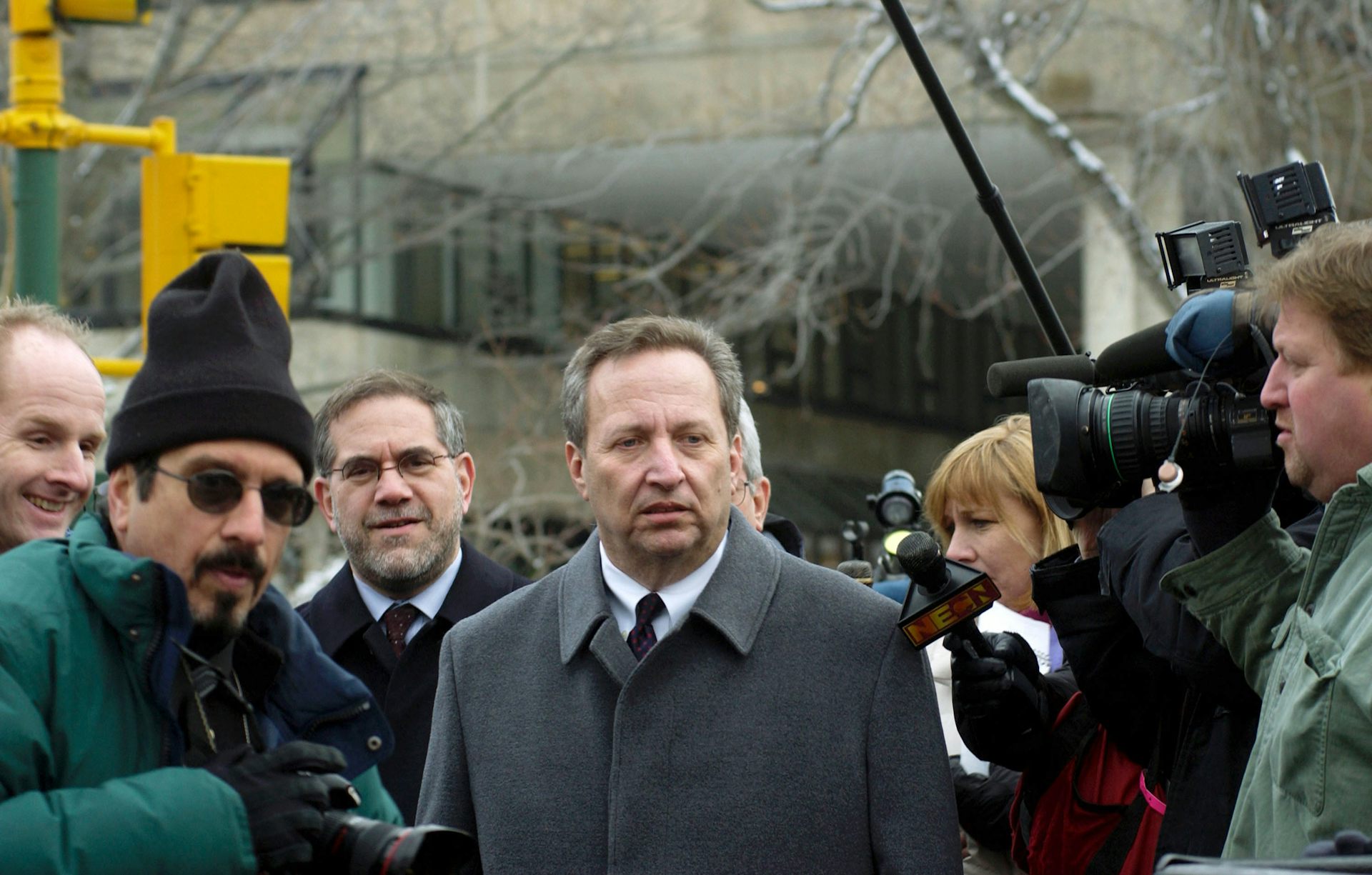Eviction filings can destabilize tenants’ lives – even when they win their case
A new housing study suggests that eviction records are not merely a reflection of renters’ instability − they are also a cause of it.
After Charla’s landlord failed to repair leaks that caused the ceiling to collapse in her daughter’s bedroom, she withheld her rent. Shortly after, her landlord filed an eviction case against her for nonpayment.
Though she won her court case, Charla and her family had to remain in unsafe conditions as she searched for new housing and was repeatedly denied. She says she spent at least US$2,000 on unsuccessful application fees.
“When we go to find new housing, we can’t because we have these [filings] on our records, and that’s wrong,” said Charla, a pseudonym. “I won [my] case … It’s still following me. Why?”
We are researchers who study housing policy and eviction. Our most recent research documents the far-reaching collateral costs of eviction filings for 29 Pennsylvania tenants who experienced a “best-case scenario” in court.
Each of the tenants included in our study had legal representation and had their case resolved with a dismissal, withdrawal or a win. No one received an eviction order in court. We asked tenants in our study to describe the costs and losses they had experienced since their landlord filed to evict them.
We found that regardless of a tenant’s outcome in court, eviction filings led to immediate and long-term housing instability, income loss and job insecurity, harm to physical and mental health, and strained relationships with family and friends.
Permanent stains on tenant records
Rising rents and stagnant wages have turned eviction into a routine process for poor and working-class renters. In 2023, Pennsylvania residents needed to work the equivalent of 130 hours per week at minimum wage to afford the average cost of a two-bedroom rental.
After a significant reduction in eviction filings due to pandemic-era programs, filing rates in Pennsylvania have returned to pre-pandemic levels. In 2023, landlords filed more than 114,000 cases against Pennsylvania tenants. This is the equivalent of 7 in every 100 renter households.
When a landlord files an eviction complaint against a tenant, the court generates a public record. In Pennsylvania, these records remain public indefinitely – even when the records are incomplete or inaccurate, the case is never argued before a judge or the tenant wins in court.
Our research confirms that simply being named in an eviction complaint is enough to leave a permanent stain on a tenant’s record that has lasting consequences for their well-being.
Future rental applications denied
Landlord filing and screening practices exacerbate the effects of Pennsylvania’s housing crisis and make it nearly impossible for tenants with eviction records to find safe, decent and affordable housing for their families.
Growing research documents landlords’ increasing reliance on the use of third-party tenant screening algorithms and internet searches to apply blanket denials of applicants with eviction records.
In our study, 8 in 10 participants said their eviction filing limited their future housing options. Nearly two-thirds of participants who moved after their eviction filing said a prospective landlord asked about their eviction record, and over half said a landlord explicitly denied their application because of it.
“[A] lot of people don’t want to hear your backstory. They just see that you went to court and they think you are going to be a problem,” another study participant said.
Because evictions in the U.S. are disproportionately filed against Black and Latina women and households with children, tenant screening practices that blacklist applicants based on eviction records perpetuate housing discrimination by preventing these groups from accessing future housing.

Cycle of instability
Though participants in our study did not receive eviction orders in court, the majority said they were forced to move after their eviction filing for reasons beyond their control. Most attributed this to their landlords’ failure to make repairs, which rendered their units uninhabitable.
State laws allow tenants to withhold rent if their unit is unfit for habitation and are intended to protect them against retaliatory evictions for doing so. Still, 1 in 4 Pennsylvania tenants in our study faced eviction after withholding rent for repairs.
Charla said she developed stress-related medical conditions and was in and out of the hospital after her eviction filing.
Landlords “put us in situations where we have to move because they don’t want to make repairs. Then they take us to court and try to make it seem like it’s all our fault,” she stated. “The system failed us.”
An array of circumstances led to participants’ evictions. Some faced prolonged pandemic-related hardships such as job loss, reduced work hours and deaths of loved ones. Others dealt with uninhabitable conditions, including lack of heat, running water and mold. In some cases, tenants described being sexually harassed or intimidated by their landlords. Some experienced serial eviction filings, with their landlord filing multiple eviction cases against them at the same property.
In other words, there was often much more to tenants’ stories than simply the nonpayment of rent.
Roughly half of the tenants who moved after their eviction filing described a subsequent period of homelessness.
The desperate need for a stable place to live led some to accept substandard conditions from landlords who would rent to them despite their records. This aligns with prior research showing that landlord eviction practices and code violations concentrate tenants in housing and neighborhoods of last resort that can be detrimental to health and well-being.
Our research also showed that tenants with prior eviction records were often hesitant to assert their right to habitable housing. For example, 43% of participants reported being less willing to advocate for repairs after their eviction filing.
Efforts to seal eviction records
Due to the severity of the eviction crisis in the U.S., significant inaccuracies in eviction court data and widespread use of tenant screening services, at least 12 states, including California, Colorado and Oregon, limit public access to eviction records or regulate how landlords can consider eviction histories in tenancy decisions.
Because tenant screening companies can gather details from eviction records as soon as the information is public, legal scholars and organizations such as the American Bar Association, National Low Income Housing Coalition and Network for Public Health Law have recommended laws that automatically and permanently seal eviction records at the point of filing to keep the information private.
With support from housing justice advocates, Pennsylvania policymakers are considering legislation to seal eviction records but face resistance from the landlord lobby.
Just as Pennsylvania’s Clean Slate legislation, passed in 2018, has enabled people with criminal records to access housing and economic opportunities, eviction record-sealing can remove unjust barriers for people with eviction records. We believe this is a necessary first step to promote access to the safe and stable housing that all Pennsylvanians deserve.
Community Legal Services of Philadelphia provided funding to support this research.
Community Legal Services of Philadelphia provided funding to support this research.
Read These Next
Former Harvard president Summers’ soft landing after Epstein revelations is case study of economics’
Despite repeated calls for the university to revoke his tenure, the economist held onto his teaching…
There aren’t enough geriatricians – here’s how older adults can still get the right care
A few simple strategies can help older adults convey their needs to their health care provider.
Fewer new moms are dying in Colorado – naloxone might be one reason why
The opioid reversal drug is distributed directly to new moms at many of Colorado’s birthing hospitals.





